- Home
- Robin Cook
Nano Page 2
Nano Read online
Page 2
“Pia!” said George Wilson. “You’re home. Terrific! How are you?” His lips were pulled back in an uncertain smile as he vainly tried to look her in the eye and gauge her reaction to his unexpected appearance on her doorstep. Then his line of sight went south, taking in her nearly naked body, and his smile broadened. At least the sight of her was welcoming. To him she was as alluring as she’d always been. He held a sad-looking bunch of roses.
“George, what the hell are you doing here?” demanded Pia Grazdani, pronouncing each word separately, uninterested in hiding her intense irritation. Her hands were jammed down on her hips with her jaw jutting forward, lips pressed together. Only when she followed George’s gaze did she remember she was dressed in only a sports bra and panties, exposed to the apartment-complex’s hallway, where some of the neighbors’ children were playing. At her feet and extending over to the couch where she had fallen asleep was a trail of running gear: shoes, ankle-high socks, a white sweatshirt, running shirt and shorts, and a small backpack. On the coffee table was an iPod with earphones.
“You better come in,” she said with uncamouflaged resignation, backing into the sparsely but tastefully furnished room. “What are the flowers for?” Her tone reflected her exasperation.
“What do you think? It’s April twenty-first. It’s your birthday. Happy birthday, Pia.” George smiled, then shrugged defensively and busied himself by shutting the door behind him. He stood his roller bag up on its end and telescoped the handle.
“Oh,” Pia said simply. “It’s my birthday?” Pia was aware of the date, but had done nothing to acknowledge it. She retreated back into the interior of the apartment, picking up her running gear as she went.
George took in the lovely swell of Pia’s derriere, appreciating that her figure was just as stunning in reality as it had been in his imagination over the far too many months since he’d last seen her. He watched as she quickly pulled on the clothes she’d rescued from the floor. When she plopped down on the sofa, clutching her knees to her chest with her bare feet poised on the coffee table’s edge, she looked across the room at him. It was painfully clear she was less than thrilled about his surprise visit. George’s eyes swept the apartment. It was of generous size, sparsely appointed with what appeared to be new, nondescript furniture. To George it looked as if no one lived there. There were no knickknacks, no photos, just a stack of medical textbooks on an otherwise empty dining-room table.
“Nice place,” George said, wanting to be positive. He was nervous but determined. After months of calling Pia and leaving unreturned voice messages and sending countless pleading emails and texts with barely a reply, George had talked himself into coming out to see Pia, using her birthday as the excuse for a surprise visit.
Since they had last seen each other almost twenty-four months previously in New York, George had tried to change his persona, even dating a couple of attractive and personable women at the UCLA Medical Center, where he was a second-year resident in radiology. George thought he was stronger now, but now that he was in Pia’s company, he realized he was no less in love with her, if that was what it was. Love sounded better than obsession. His attraction for her had become part of his life and would probably remain so, as simple as that. It was as if he were addicted. Ultimately George didn’t totally understand his own behavior, he just accepted it.
George approached the couch, trying to to make eye contact. As usual, Pia looked away. George was able to take that in stride. Over four years of medical school he’d grown accustomed to her inability to make eye contact. George had also done a lot of reading about reactive attachment disorder and post-traumatic stress disorder since he and Pia had graduated and parted ways. Earlier in their relationship, at Pia’s suggestion, George had contacted her former social worker, Sheila Brown, who had hinted without exactly saying that Pia was contending with these disorders. For George, knowledge was power, and the doctor in him wanted to help Pia and cure her, or so he had told himself. Such information was a great source of support for him and allowed him over the years to medicalize her inability to reciprocate his passion. This way he could weather what others might have found challenging, even devastating, to their self-esteem.
Reaching the coffee table, George held out the flowers. Pia sighed, and as her shoulders sank, George’s heart fell with them. He’d hoped for a much more propitious reception.
“Happy birthday . . .”
“George, you know I don’t care about my birthday,” Pia commented, keeping her arms clasped together around her knees. “And that happens to be the sorriest-looking bouquet I’ve seen in a long time.” Her voice had lost a degree of its hardness.
George glanced at the flowers. She was right. The blossoms were all wilted. He laughed at the flowers and at himself. “They have had a hard journey. I bought them at the L.A. airport on a whim; we had a middle seat on the red-eye to Denver, jammed between two people who must weigh three hundred pounds each. I held them the whole time, unwilling to consign them to the overhead bin. Then we stood all the way from Denver on a bus for ninety minutes before catching a cab here to your apartment.”
“Why didn’t you run the idea of coming here by me first?” Pia asked, shaking her head in disbelief that George would fly all the way from L.A. on a whim, trusting she’d be receptive. It was something she would never do in a million years.
“I couldn’t run the idea by you. You haven’t been answering voice mail, email, or texts. For all I knew, you’d been kidnapped again.”
“Let’s not be overly melodramatic,” Pia said as a chill descended her spine. She recoiled at George’s comment as if he had slapped her. Since the episode of having been kidnapped back in New York as the culmination of a series of tragic events, she had tried to suppress the whole experience, but it still consumed her, as attested to by the nightmare from which George had just rescued her.
“Okay,” Pia said with another sigh, noisily letting air escape from her lungs like a deflating balloon. “I guess you’re right, I have been out of touch, but not deliberately. I mean I haven’t been ignoring you specifically. I’ve been so busy, I’ve been ignoring everyone and everything.”
Pia gathered her thoughts as the shock of seeing George and the anxiety of her nightmare abated. “Listen, I don’t mean to be an ass. I had a hard night. I worked till six this morning, and instead of sleeping when I got back, I went for a run. After that I tried to read. This isn’t a great time for me to have company.” Pia sighed again. The reality of having to deal with George was sinking in.
The more her mind cleared, the more she realized that George’s sudden appearance was probably her fault, and not just because she had been ignoring his persistent attempts to reconnect. The problem really stemmed from what she had said to him, standing in a hospital room in New York two years before, at the very end of the events surrounding her kidnapping. She knew she’d encouraged him more than she should have. She’d talked to him about love, how she didn’t know what love meant and how she wanted to change and be more like George, who she knew loved her, as evidenced by his steadfast personal generosity, which he had showered on her, despite little encouragement from her.
At the time, Pia and George had been speaking in the presence of their fellow medical student, Will McKinley, who was lying in a hospital bed, surrounded by monitors, stuck full of tubes and barely clinging to life. He’d been shot in the head, just like he had in Pia’s nightmare, and left for dead by Pia’s kidnappers, the men who wanted Pia and, secondarily, George to stop investigating the death of Pia’s mentor, Tobias Rothman, a death Pia had eventually proved to be murder. Pia felt another chill creep through her body. Thinking about the whole horrid affair and Will’s shooting was something she doubted she’d ever be able to come to terms with.
“Have you heard anything new about Will?” Pia asked, hoping for some good news since she assumed George was more in contact with their pr
evious classmates than she.
“Last I heard, things were pretty much the same. That was a few weeks ago. Antibiotics still haven’t been able to rid him of infection. Nor have multiple surgical debridements.”
Pia nodded. This much she knew. The persistent osteomyelitis in Will’s skull where the bullet had entered had proved to be resistant to all antibiotics. Of course she knew: Will’s continuing health problems were in large part why she was in Boulder, Colorado.
“I’ll put these in some water,” said George, eager for something to do. “Maybe they’ll perk up.” He found a small kitchen off the living room and started looking for something for the flowers. Like the rest of the apartment, the kitchen looked barely lived in. The fridge was empty other than for some energy drinks and a couple of prepacked sandwiches. He picked one up and saw the “best by” date was more than three weeks in the past.
“How about we go out and get some lunch?” asked George, who had not eaten since the day before and was ravenously hungry. He received no reply as he continued looking into cupboards for something akin to a vase. He found water glasses, but they were far too small. Finally he laid the stems in the sink and looked at them wanly. He himself didn’t feel much better than they looked.
“Listen, George, I’m sorry I didn’t respond to your messages over the last couple of months or so.” Pia had gotten up from the couch and was now standing in the doorway of the cramped kitchen.
George wanted to comment that she hadn’t responded to any of his messages for more than two months, but he bit his tongue. He tried to look her in the eye, but as usual she resisted. George wondered if Pia had tried to change, as she had promised back in Will McKinley’s hospital room. Would she ever be able to speak from the heart, or was she always going to keep a wall between them, fearful he might betray her? George knew what kept her from opening up. Her childhood in foster care from age six until age eighteen had been one of ongoing abuse and betrayal, sucking all the love out of her. She had learned to survive by going inward, not trusting anyone.
“I know what I said in Will’s hospital room,” Pia continued. “I’ve tried to change, to be open to love, but I just don’t seem to be able to do it.”
George wondered, as he had so often, if Pia could read his thoughts. But what was encouraging was that he also thought she looked convincingly pained. If it were true, he thought of it as progress of sorts. It certainly wasn’t bringing them together, but at least it might be a few steps in that direction.
“My father suddenly reappearing like he did, saving my life at the eleventh hour, I suppose I should have been more thankful, but it was difficult. After abandoning me to foster care and all the pain that caused, he thought he could just march back into my life. He said he wanted us to be a family, as if that were possible. I had to get away from New York and from him and you didn’t help.”
George looked at his shoes. He recalled the uncomfortable meeting he had had with Burim Graziani, born Grazdani, Pia’s father, without telling Pia beforehand, much less asking her permission. By that time Pia had refused to talk about her kidnapping to George or to anyone, and George had been questioned for days by the police. What did he know about the deaths of Pia’s boss, the renowned researcher Dr. Tobias Rothman, and his associate, Dr. Yamamoto? What had happened when Pia was abducted in the street and Will McKinley shot, events he had witnessed? Did he know where Pia had been held, and how she escaped? Had he ever heard of Edmund Mathews and Russell Lefevre, two bankers whose deaths were thought to be linked to Rothman’s? In truth, George knew very little, and when Burim called him, saying he was Pia’s father who had changed his family name after giving Pia up to foster care, and asked to meet, it was a bolt from the clear blue sky. Unfortunately George had thought he could help.
When they met, despite George’s unfamiliarity with life’s unpleasant underside, he recognized in Burim Grazdani, he couldn’t adjust to Graziani, a very dangerous man. George had left their meeting in a café shaken up, but he had agreed to try to intercede between Burim and Pia. Once again his urge to try to help had got the better of him. When Pia had learned of the meeting she’d become enraged, screaming at George to stay out of her life, saying that this man who said he was her father was dead to her. It was one of the last times George had seen Pia before he left for Los Angeles and she had left for a supposed long sojourn on a beach somewhere, a trip Pia had never talked about to him before coming to L.A. herself.
“I understand you wanted to get away from New York, and maybe it was best for you,” said George, even though he regretted her leaving terribly. “I understand your sudden career confusion and wanting to put off your internal medicine residency and getting a PhD because of Rothman’s death. I understand all that. But Boulder! Why Boulder . . . ?”
“I love it here, George. I love the air. I love my work. I love the mountains. I’ve become a health nut. I started running, mountain biking, even skiing.”
As Pia carried on about Boulder and exactly what she was doing in her current work, George stopped listening. He didn’t care about Boulder; what he really wanted to know was why she had not ended up in L.A., where Pia had said she was going before they had fallen out over her father. The fact that Pia had told him she was going to L.A. to do research for several years was the one and only reason he had turned down the residency at Columbia Medical Center and gone to Los Angeles himself. As he might have predicted, without Pia there, he was not fond of L.A. Pia was still talking.
“. . . and another reason I came here to Boulder was because of Will McKinley’s osteomyelitis infection in his skull. If you haven’t guessed, I feel overwhelmingly guilty about his condition. Indirectly, I was responsible. My hope is that we can use nanotechnology in the form of a microbivore-based antibacterial treatment on him. We’ve got them here at Nano, and they work. What is needed at this point is FDA approval, which is what we’re going to be working for as soon as we finish preliminary safety studies. Ever since I’ve been here I’ve been working with these microbivores. They are amazing.”
“Microbivores? You’ll need to fill me in a little.”
“George, you weren’t listening. Didn’t you hear what I was just telling you about what I’ve been doing here for eighteen months?”
“My mind wandered a bit,” George admitted. His uncertain smile returned. The hoped-for rapprochement with Pia was testing his less-than-perfect diplomatic skills.
“I’m not supposed to be talking about what we are doing before all the patents are formalized, but what the hell. I haven’t breathed a word to anyone. I trust you will keep what I say under your hat.”
“No problem,” George assured her. He wanted to encourage her. Counting on his confidence was a suggestion of intimacy, for which George hungered.
“It’s going to be a new type of antisepsis,” Pia continued. “The antibiotic era of fighting bacteria is near its end. I mean, bacteria are developing resistance faster than new antibiotics can be found. The hope is that medical nanotechnology will come to the rescue and provide rapid cures, particularly for sepsis. Specifically, I’m convinced it could cure Will’s osteomyelitis.”
“How will nanotechnology help Will?”
“As I said: by using the microscopic nanorobots called, appropriately enough, microbivores, which I’ve been working with for almost two years. They are much smaller than red blood cells, and they eat bacteria and other microorganisms when introduced into the bloodstream of a living animal. They’ll even be able to be programmed to seek out, eat, and digest infectious proteins like prions or the tau proteins associated with Alzheimer’s disease, which antibiotics are useless against.”
“I’m sorry to have to admit this, but my knowledge of nanomedicine isn’t the greatest. I mean, I know how it has contributed to sun screens, but that’s about it.”
“Well, you are going to have to catch up or you’re going to be lef
t behind. Medical nanotechnology is the future. It’s going to totally change medicine, probably as much as regenerative stem cell technology. Between the two, five or ten years from now, the practice of medicine is going to be completely different.”
“Microbivores coursing around in the body eating up bacteria. Sounds like that old science-fiction movie Fantastic Voyage.”
“I guess. I never saw it. But this is not science fiction.”
“And they are smaller than a red blood cell?”
“Absolutely. The ones I’m working on are ovoid, with their long axis about three micrometers long, which is six times smaller than the width of a human hair.”
“I’m telling you: this sounds like science fiction.”
“They’re real. I’m working with them every day.”
“So, what about L.A.?”
Pia cocked her head to the side and regarded George questioningly. “What do you mean, ‘what about L.A.?’” To her, George’s comment was a total non sequitur.
“I thought you were going to L.A. to do research. You never mentioned Boulder . . .”
“Well, there was a brief period when I thought I was going to go to L.A. I had found out there was a nanotechnology company in L.A. that was interested in microbivores, but their program is still in the design stage. I applied for a research position, but then I was contacted by a head-hunter who sought me out for the company here in Boulder called Nano, which has far outpaced its competitors in molecular manufacturing.”

 Shock
Shock Mutation
Mutation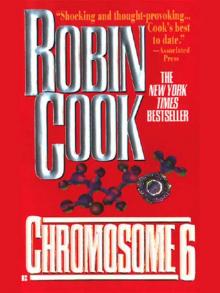 Chromosome 6
Chromosome 6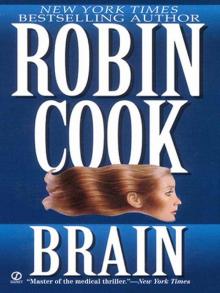 Brain
Brain Intervention
Intervention Invasion
Invasion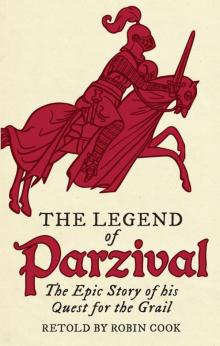 The Legend of Parzival: The Epic Story of His Quest for the Grail
The Legend of Parzival: The Epic Story of His Quest for the Grail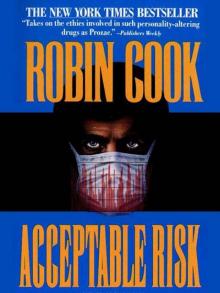 Acceptable Risk
Acceptable Risk Cell
Cell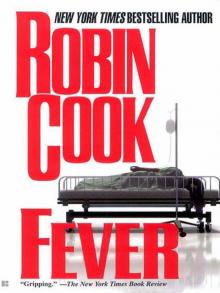 Fever
Fever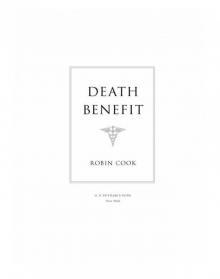 Death Benefit
Death Benefit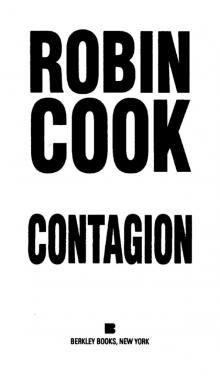 Contagion
Contagion Mindbend
Mindbend Coma
Coma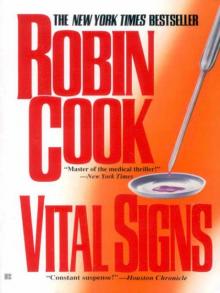 Vital Signs
Vital Signs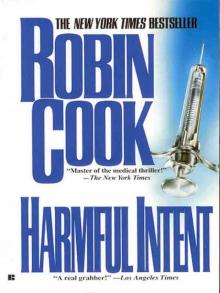 Harmful Intent
Harmful Intent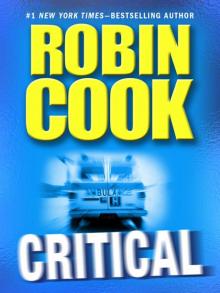 Critical
Critical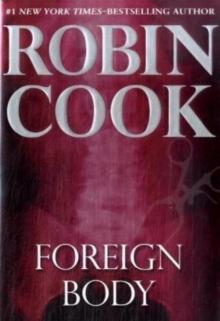 Foreign Body
Foreign Body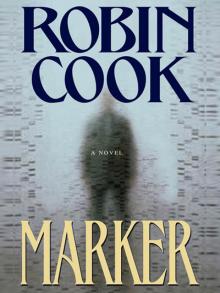 Marker
Marker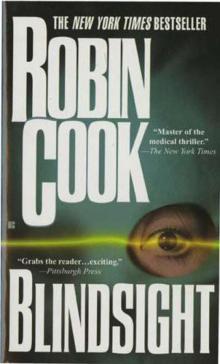 Blindsight
Blindsight Terminal
Terminal Sphinx
Sphinx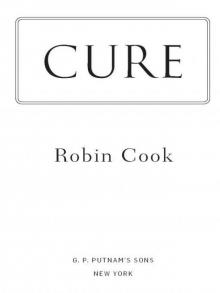 Fatal Cure
Fatal Cure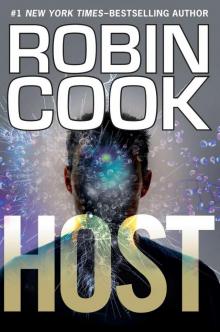 Host
Host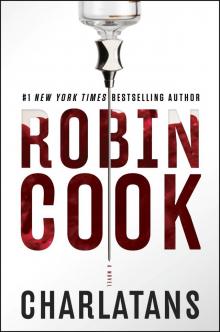 Charlatans
Charlatans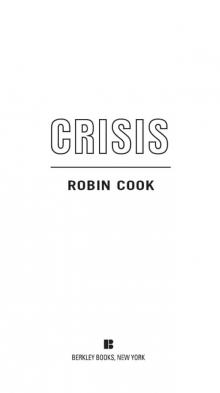 Crisis
Crisis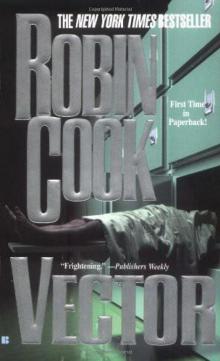 Vector
Vector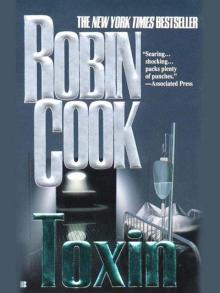 Toxin
Toxin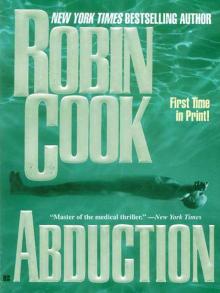 Abduction
Abduction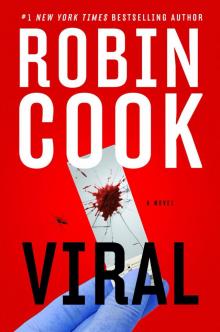 Viral
Viral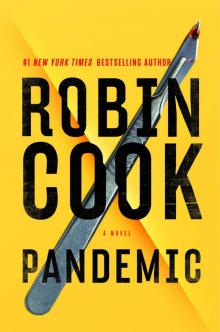 Pandemic
Pandemic Outbreak
Outbreak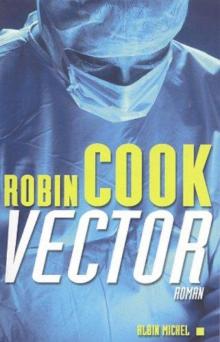 Vector js&lm-4
Vector js&lm-4 Godplayer
Godplayer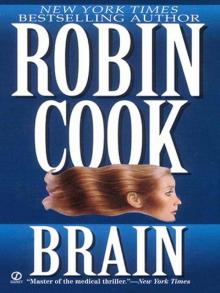 A Brain
A Brain Year of the Intern
Year of the Intern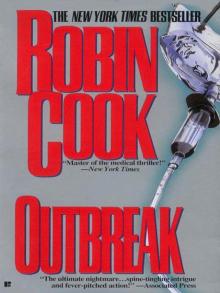 Outbreak dmb-1
Outbreak dmb-1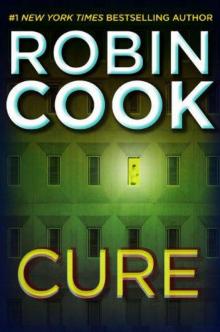 Cure
Cure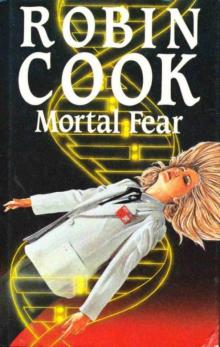 Mortal Fear
Mortal Fear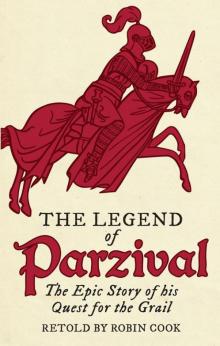 The Legend of Parzival
The Legend of Parzival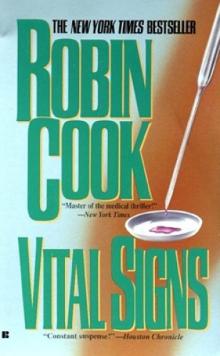 Vital Signs dmb-2
Vital Signs dmb-2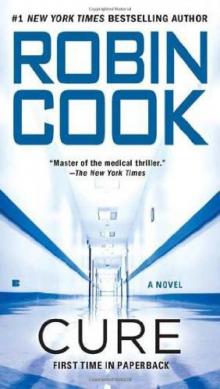 Cure (2010) sam-10
Cure (2010) sam-10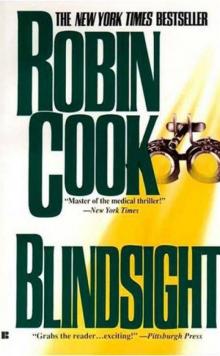 Blindsight sam-1
Blindsight sam-1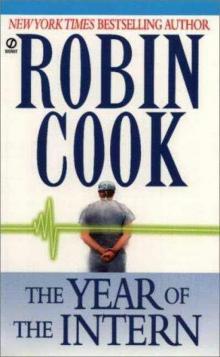 The Year of the Intern
The Year of the Intern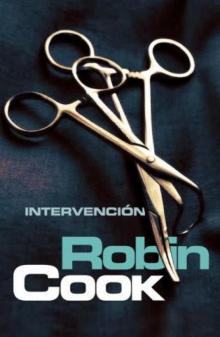 Intervention sam-9
Intervention sam-9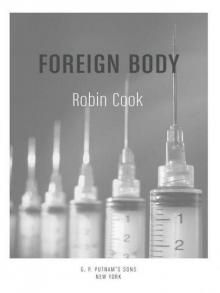 Foreign Body sam-8
Foreign Body sam-8